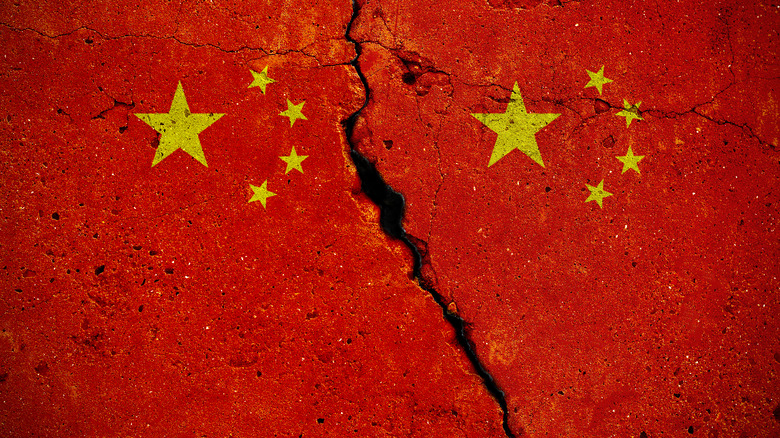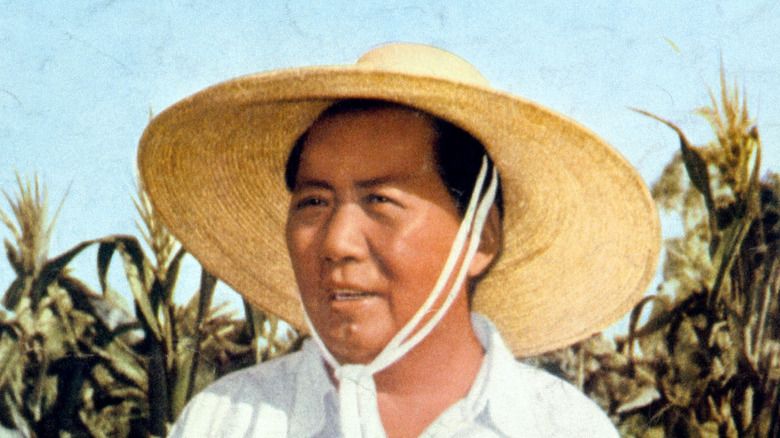The Terrible Consequences Of The Great Leap Forward
China's history in the 20th century has been defined by constant turmoil as different groups struggle for power. After spending centuries under the Qing dynasty (an ethnically Manchu dynasty viewed by the majority Han population as foreign occupiers) and decades under British colonial pressures, a massive revolution led by Sun Yat-sen swept the country in 1911, per Edward Rhoads' "Manchus and Han." The self-proclaimed Republic of China replaced over 2,000 years of imperial rule, but could not curtail the historically prevalent trend of violent infighting. The revolutionaries were split between the Kuomintang (or KMT) party led by Chiang Kai-shek and the Chinese Communist Party led by Mao Zedong, as local warlords and Japanese forces simultaneously occupied many provinces (via Britannica).
The Chinese civil war was only barely halted during Japan's brutal invasion of the country, after which it resumed until 1949. By then, the KMT had fled to Taiwan, the warlords had finally been defeated, and the new People's Republic of China took control of the mainland. While the KMT-controlled Taiwan was recognized by the United Nations as the legitimate Chinese government until the 1970s, the CCP had essentially won the war (via HIstory.com). In spite of the promise of a fresh start for China, efforts by the new regime to modernize saw unimaginable death both directly and indirectly by their hand.
In the CCP's pursuit of a modern China, millions perished
As Investopedia reports, the Soviet-esque five-year plan — the Great Leap Forward — lasted from 1958 to 1961. Despite its short duration, the project led to an estimated 30 million to 55 million deaths. During this period, collectivized farming became policy, with all private resources requisitioned and centrally redistributed after their owners were executed under Mao's orders. Famine was subsequently brought on by untested farming techniques, irrigation projects not designed by engineers, and unprecedented swarms of grain-eating insects surfaced after Mao had millions of the sparrows that preyed on them killed (believing the birds themselves to have been the issue).
Attempts by China's residents to forage for food were frequently met with all manner of public torture, humiliation, and even execution. Meanwhile, their farming tools were typically among the materials used in the backyard steel furnaces mandated by the party in an attempt to increase China's steel production as proper factories were established. The resulting product was often useless, but the CCP refused to halt the practice as it may have "dampened the enthusiasms of the masses" (via Facts and Details). By the end of this experiment, millions had died, and China's ecosystem saw massive long-term damage.

